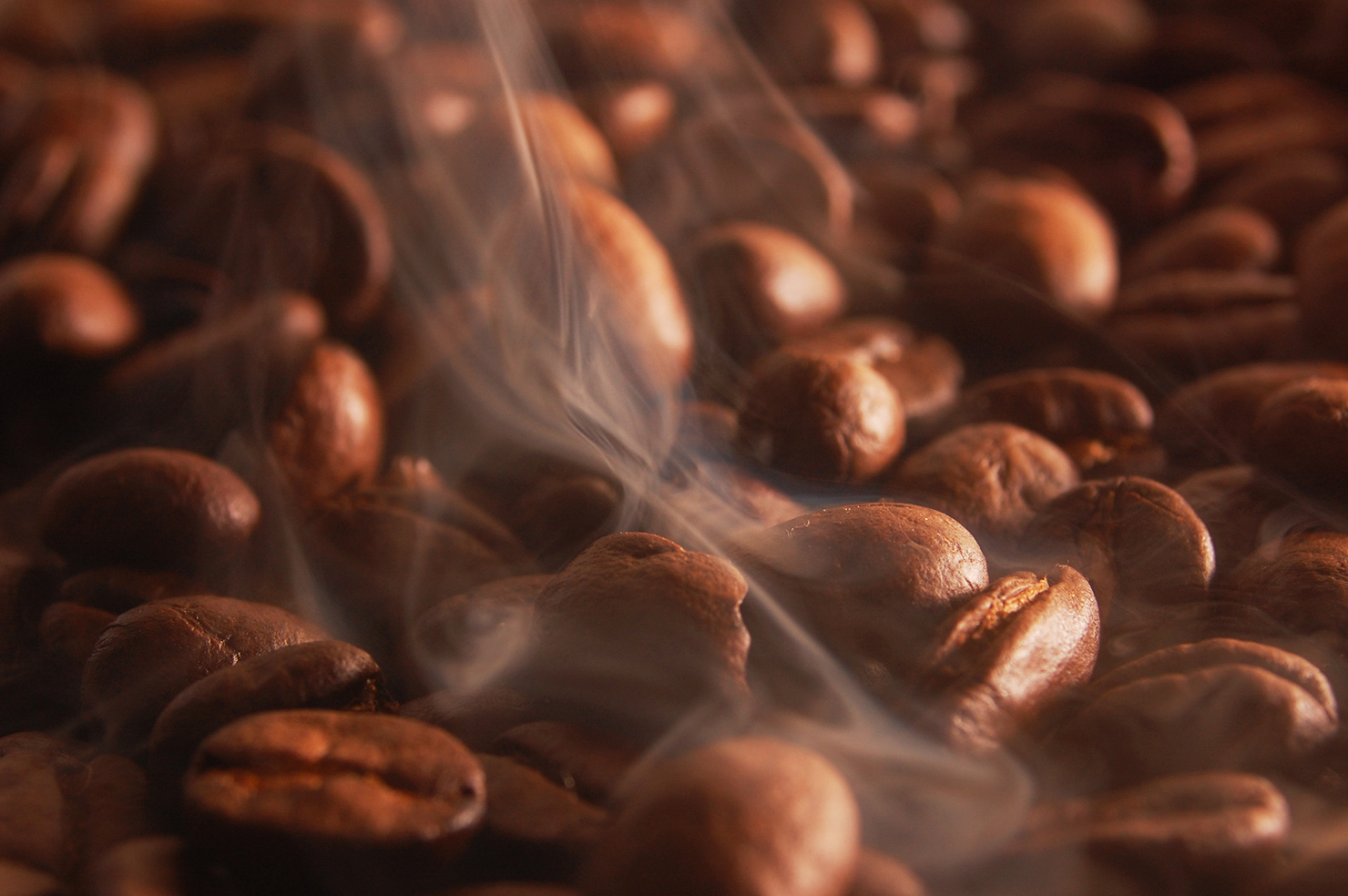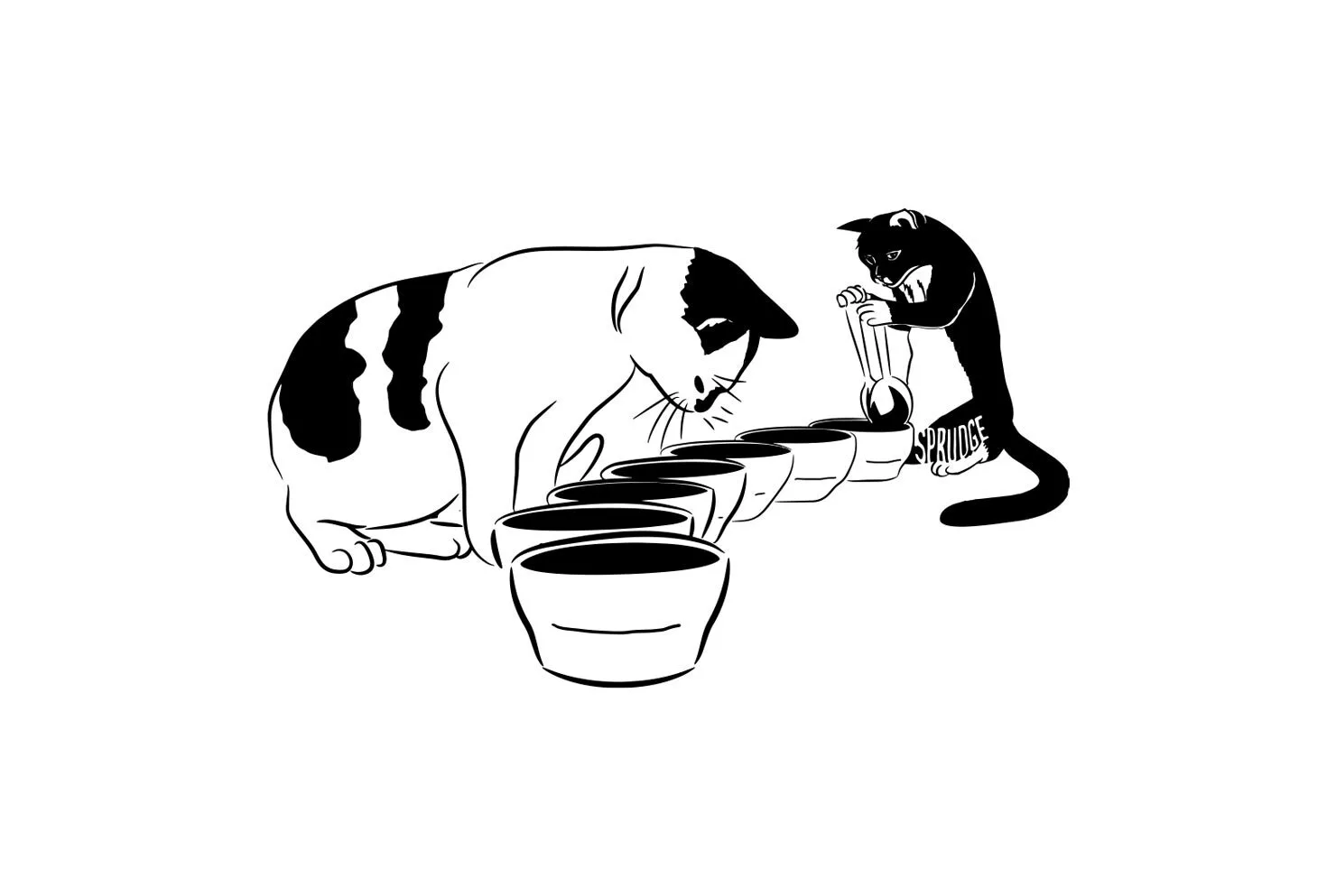Do Californians know something we don’t? It often seems that way, as the rest of the world goes about its merry business using goods and consuming things that residents of the Golden State have been cautiously advised against. One such caution flag has been waved at the potential dangers of acrylamide, a chemical that results from the process of applying high temperatures to foods. And, you guessed it, it’s a natural byproduct of the coffee roasting process, too. Though the coffee industry won its legal battle in 2020 to avoid a Proposition 65 requirement to add label warnings about acrylamide in coffee, many coffee drinkers still have questions.
You create acrylamide in any high-heat cooking process like frying, baking, and coffee roasting that activates naturally occurring sugars and and amino acids. Consuming acrylamide in large doses can be harmful to health, and those who work with it in industrial settings must take precautions against overexposure. However, most of us consume it every day in cooked foods.
Why is acrylamide in my coffee? Is it in all coffee?
Acrylamide is in all coffee, as an unavoidable product of the Maillard reaction, that wonderful process that causes sugars and amino acids within food to transition to the brown, delicious toasty-roastiness we find in the crust of bread, the seared sides of a steak, a crispy french fry or potato chip, and of course the roasted coffee bean. The Maillard reaction produces all those exciting flavor compounds we love in coffee, and along with it, produces acrylamide, too. Acrylamide levels peak early in the roasting/Maillard process, but then begin to decline with continued application of heat. For this reason, dark roasted coffee may paradoxically have less acrylamide than lighter roasts.
What will too much acrylamide do to me?
In high amounts, acrylamide is considered carcinogenic. However, the amount of acrylamide in your average brewed coffee is 0.45 micrograms, according to a widely cited 2013 Swedish study. Compare this to the 39-82 micrograms of acrylamide that you’ll find in your average serving of fast-food french fries, and that cup of coffee is looking less carcinogenic by the minute.
What’s the good news?
The many health benefits of coffee—several of which are considered to be cancer-preventative, due to the high concentration of chlorogenic acid and other antioxidants—all argue in favor of coffee consumption being overall good, not bad, for health and longevity. All in all, at least as far as cancer is concerned, coffee appears to be a net win.
Is there anything I can do to reduce the acrylamide in my cup of coffee?
Darker roast coffees are thought to have less acrylamide than lighter roasts, and higher quality Arabica coffees roasted at high heat and brewed for shorter duration are thought to have less acrylamide, too. On the other side of the spectrum, instant coffees have been found to have a great deal more acrylamide than traditionally brewed coffees. However, there is not yet data to determine whether the newer generation of craft instant coffees are as susceptible to the increased amounts from their processes. Reduction of acrylamide in traditionally roasted and brewed coffees requires further study, as the effect of other types of roasting would almost certainly alter the characteristics today’s consumers desire in the final cup.
Have we always known about this?
No, actually. While the existence (and hazards) of acrylamide in workplace chemicals (like adhesives, caulk, and wastewater treatment chemicals) has been long-established, the presence of acrylamide in food is a relatively recent discovery—dating back to a 2002 Swedish study on potatoes and crispbreads. However, it is believed that acrylamide has always been part of the cooking process for as long as humans have been cooking. We just didn’t realize it. So, depending on whether you’re a (coffee) glass half full or half empty type… you’re probably okay. But now, you’re better informed.
Liz Clayton is the associate editor at Sprudge Media Network. Read more Liz Clayton for Sprudge.

























